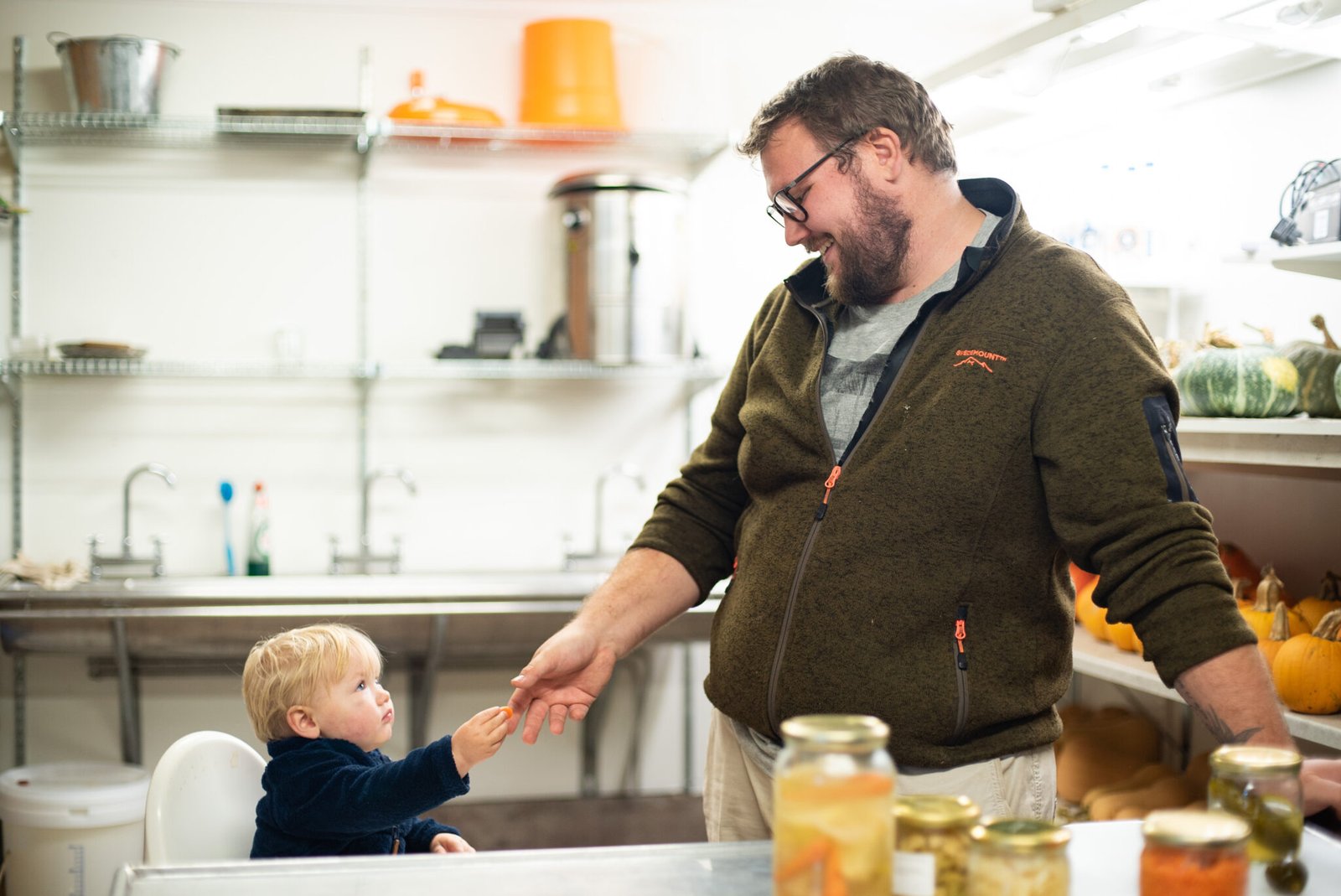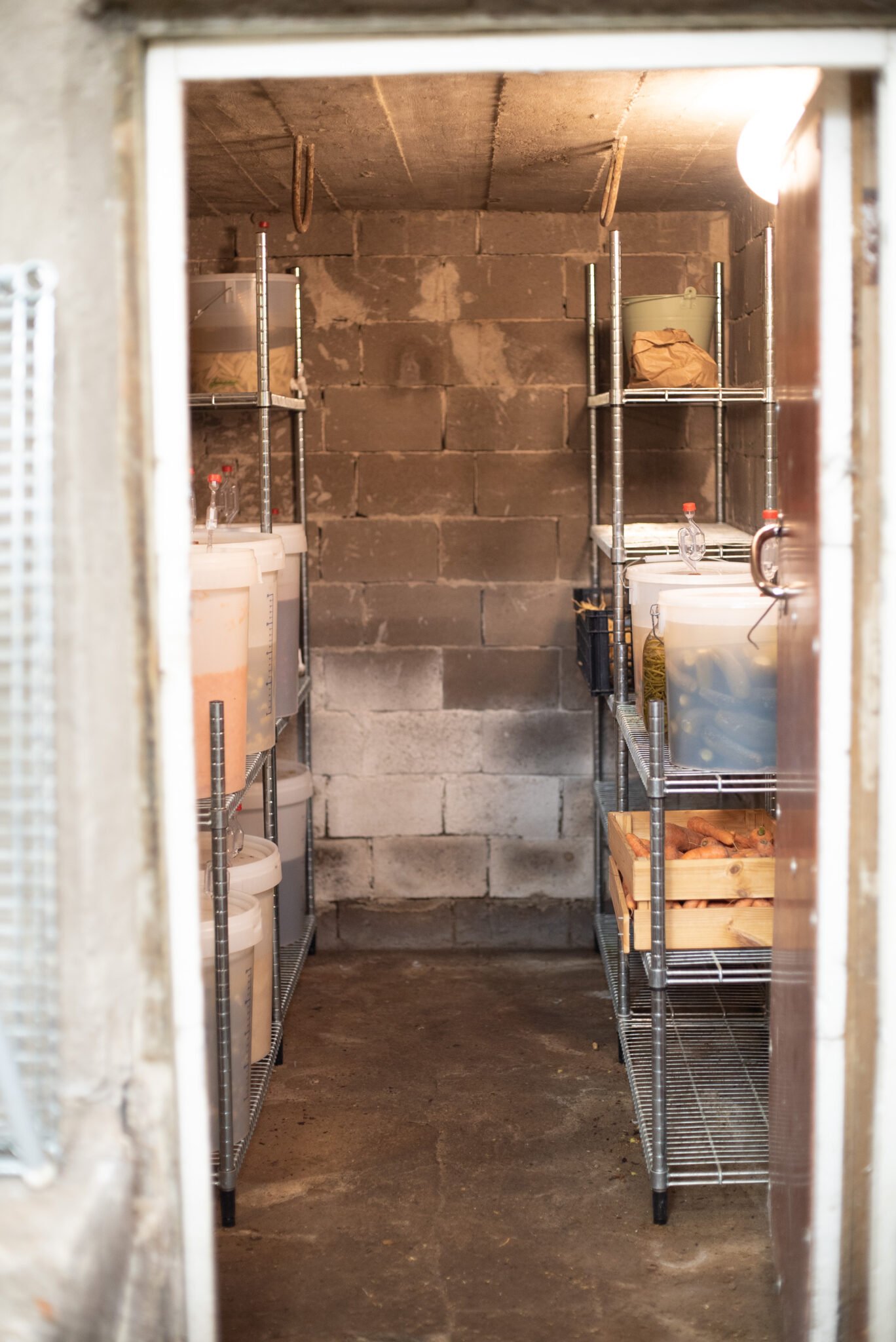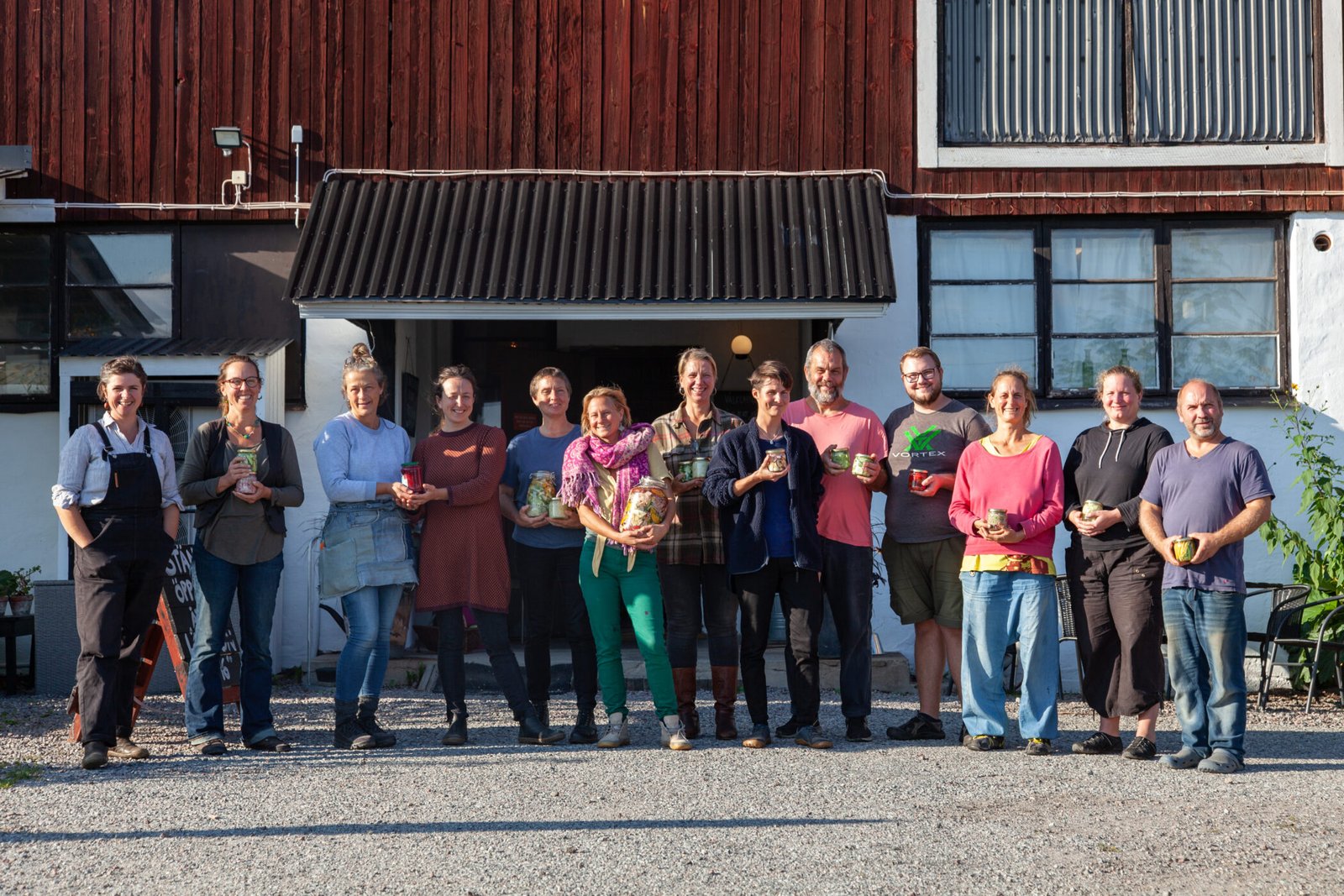
Conversation Nicklas Blomster
On a very warm day at the end of October, we meet Nicklas and his son Hugo at their vegetable plot outside Vara, Västra Götaland. We take a stroll through the vegetable garden, now well protected by a game fence. Kale and Brussels sprouts stand tall next to the stems of the just-harvested red cabbage, destined for both fresh sales, and a batch of 30 liters of sauerkraut.
Nicklas and his partner moved to their farm in Önum in 2019 and plowed up the lawn in the autumn of 2020. In the spring of 2021, he started cultivating the land. “This is my second season, so to speak. The place is still relatively new to us, and there is still a lot of experimenting and building up infrastructure, testing what works, and figuring out which crops are suitable,” Nicklas explains.

Nicklas describes himself as a new grower, and the uncertainty, along with the desire to provide a wide variety of vegetables, has sometimes resulted in a significant amount of unsold produce. “Before last year, I had a lot of chickens, and they took care of all the leftover vegetables. This year, we didn’t have chickens, but instead, we started fermenting. It was actually when I saw your course that I realised I could combine it with my cultivation, that I could ferment vegetables for sale. It allows me to have a product to sell throughout the winter. It feels very logical to combine it with the farming,” he explains.

In addition to restaurant customers, Nicklas sells his vegetables and products at Lokalen in Vara, an initiative by Maria Kronvall, a small-town developer for Vara Municipality. “There was an empty space in Vara, and she invited a lot of people and asked, ‘What can we do with this space?’ There were many artisans and artists, and I, with my vegetables, showed interest, so it became a shop. We are open on Fridays and Saturdays as it stands now, and we have a rotating schedule for who’s on shop duty. Each person can stand a maximum of one to two times a month. We have also used it as a meeting place and held some events, as well as pop-up sales for people who want to try selling in a shop. I see it as my farm shop,” he explains.



His fermented products have been well received by customers in Vara. “People are rediscovering fermented vegetables, and for many, it evokes memories of having eaten it as children; they have become my regular customers because they can’t find these items anywhere else. You won’t find such things in the stores; most of it is pasteurized and imported. There is no one else here who offers what I have,” he explains.
Nicklas doesn’t feel that there have been any major setbacks with fermentation, apart from a few beginner mistakes. “It has been quite easy, to be honest – the processes are not complicated in that sense. “Right now, the fermented grated carrot is the favourite – I like it when there’s a bit of crunch. Carrots and even kohlrabi maintain their texture. I have made a coleslaw where I mix fresh cabbage with sauerkraut and carrots, and I also use it on hamburgers – where I used to have pickled toppings, now it’s fermented instead.”
So far, fermented vegetables have been a secondary product for Nicklas, but he envisions a future where he will plan and cultivate specifically for fermentation, at least for some of the crops.
Nicklas participated in Förädlingsodling: fermentation for small-scale vegetable growers in August 2021 at Öråkers Gård, Kungsängen.

